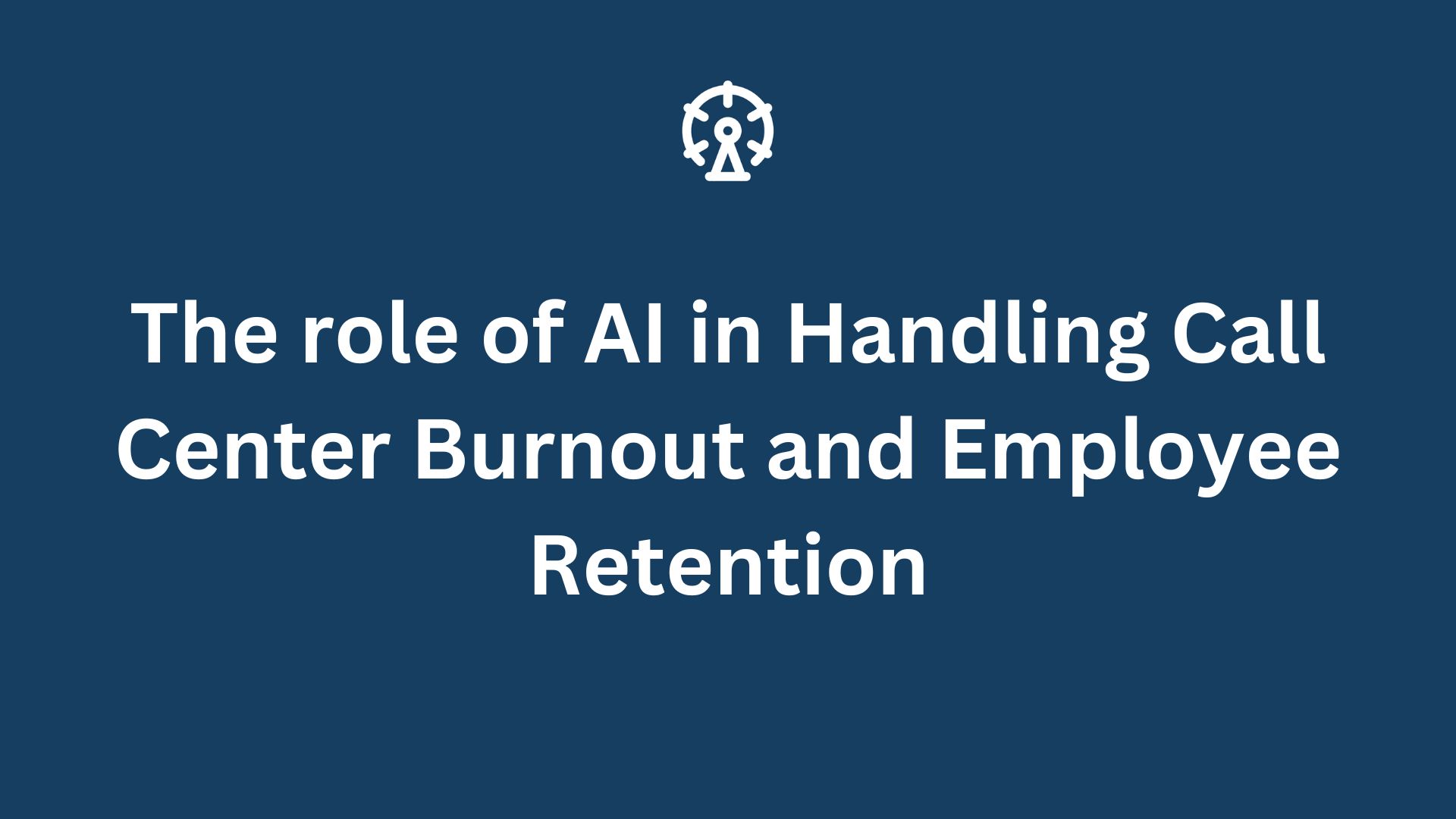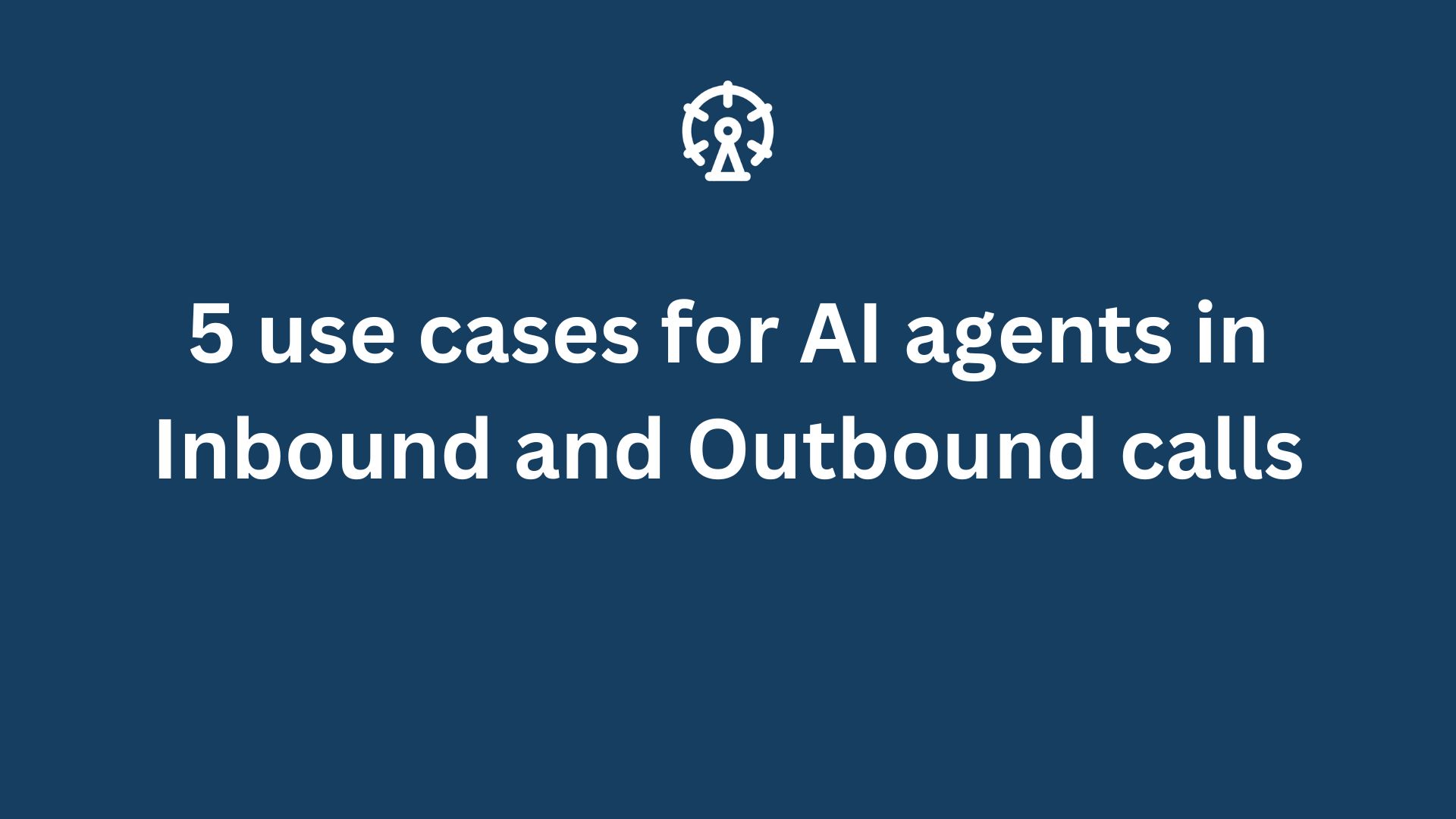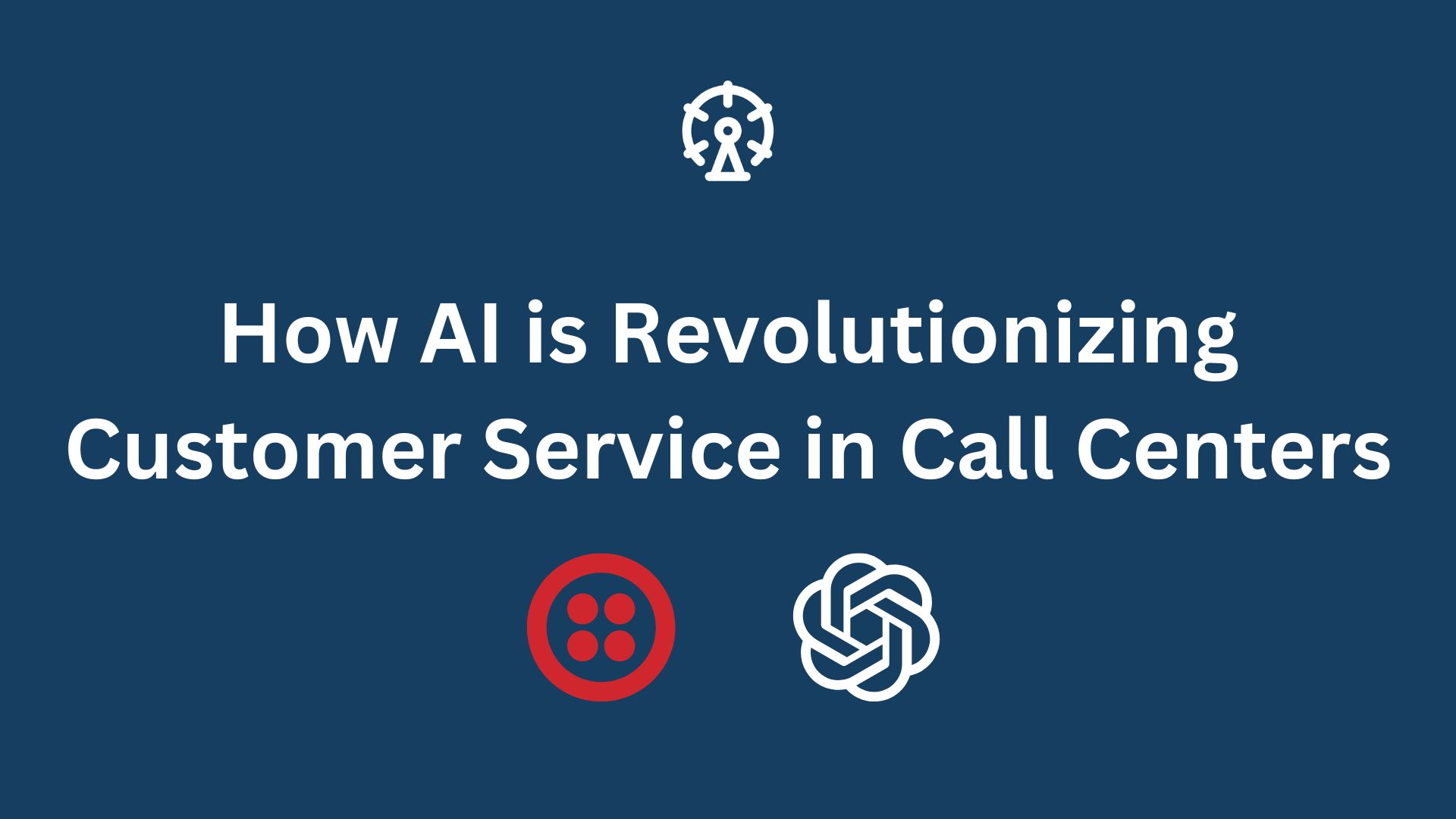The Role of AI in Handling Call Center Burnout and Employee Retention
Call centers are the backbone of customer service for many businesses, but they come with a well-documented challenge: employee burnout. Long hours, repetitive tasks, high stress, and the pressure of meeting performance metrics create an environment where burnout can thrive. This, in turn, leads to high turnover rates, which are costly and disruptive for organizations.
Enter artificial intelligence (AI) – a transformative tool that is not only reshaping customer interactions but also addressing burnout and improving employee retention in call centers. In this article, we’ll explore the role AI plays in alleviating stress, reducing workload, and creating a more supportive work environment for call center agents.
Understanding Burnout in Call Centers
What Causes Burnout?
Call center agents face unique challenges that contribute to burnout, such as:
Repetitive Tasks: Constantly answering the same questions or handling routine issues can be mentally draining.
High Call Volumes: During peak hours or busy seasons, the pressure to manage numerous calls becomes overwhelming.
Difficult Customers: Handling angry or frustrated customers regularly takes an emotional toll.
Performance Pressure: Metrics like average handling time (AHT), first call resolution (FCR), and customer satisfaction scores add to the stress.
The Cost of Burnout
Burnout doesn’t just affect employees; it impacts the entire organization. High turnover rates lead to increased recruitment and training costs, reduced morale among remaining staff, and a decline in overall service quality.
How AI Helps Combat Burnout
AI offers practical solutions to many of the issues that cause burnout in call centers. By automating repetitive tasks, providing real-time support, and fostering a more efficient workflow, AI creates a work environment where agents feel more valued and less overwhelmed.
1. Automating Routine Tasks
One of the biggest contributors to burnout is the monotony of repetitive tasks. AI-powered tools like virtual assistants and chatbots can handle routine queries such as password resets, order tracking, or FAQs. This allows agents to focus on more engaging and complex issues that require critical thinking and empathy.
Example: An AI chatbot manages standard inquiries about store hours or refund policies, freeing up agents to handle nuanced customer concerns.
2. Providing Real-Time Assistance
AI acts as a helpful partner during calls by providing real-time suggestions, prompts, and access to relevant customer data. This reduces the cognitive load on agents and helps them resolve issues more efficiently.
Example: AI listens to a customer interaction and instantly suggests solutions, appropriate upsell opportunities, or de-escalation tactics based on the conversation’s tone and context.
3. Streamlining Call Routing
Intelligent call routing systems use AI to analyze the context of a customer’s issue and direct them to the best-suited agent. This minimizes the frustration of dealing with misrouted calls and ensures agents handle inquiries aligned with their expertise.
Example: A technical issue is routed directly to a specialized support agent instead of a generalist, saving time and effort for both the customer and the agent.
4. Reducing Peak-Time Pressure
During busy periods, AI can step in to manage call overflow, reducing the burden on human agents. Virtual assistants can handle low-priority inquiries or offer callback options to balance workloads.
Example: A virtual agent handles non-urgent billing queries during a product launch, allowing human agents to focus on higher-priority calls.
5. Monitoring Agent Well-Being
AI-driven sentiment analysis tools don’t just gauge customer emotions; they can also monitor agent stress levels. By analyzing voice tone, response patterns, and workload data, AI identifies when an agent might be nearing burnout and suggests breaks or workload adjustments.
Example: An AI system detects that an agent has had multiple difficult calls in a row and recommends a short break to recharge.
Improving Employee Retention with AI
Reducing burnout directly impacts retention, but AI can take it a step further by improving the overall employee experience.
1. Skill Development and Training
AI can identify knowledge gaps and provide personalized training recommendations, helping agents grow in their roles and feel more confident.
Example: An AI tool tracks common issues agents struggle with and creates targeted micro-learning modules to address them.
2. Recognition and Feedback
AI tools can analyze performance data and highlight areas where agents excel, ensuring they receive recognition for their efforts. Constructive feedback can also be delivered in a timely manner, helping agents improve without feeling micromanaged.
Example: An AI dashboard highlights an agent’s high customer satisfaction scores and suggests celebrating their achievements in team meetings.
3. Flexible Work Arrangements
Remote and hybrid work options are becoming increasingly popular. AI tools make it easier to manage distributed teams, ensuring fair workload distribution and effective collaboration.
Example: AI optimizes shift schedules to align with agent preferences and workload demands, enhancing work-life balance.
Conclusion
Burnout and turnover are longstanding challenges for call centers, but AI offers a path forward. By automating repetitive tasks, providing real-time support, and creating a more supportive work environment, AI not only improves the day-to-day experience for agents but also boosts retention and overall service quality.
As AI continues to evolve, its role in addressing workplace challenges will only grow. Organizations that embrace these technologies will not only retain top talent but also set themselves apart as leaders in the customer service industry. Investing in AI is an investment in both your team’s well-being and your company’s future success.




